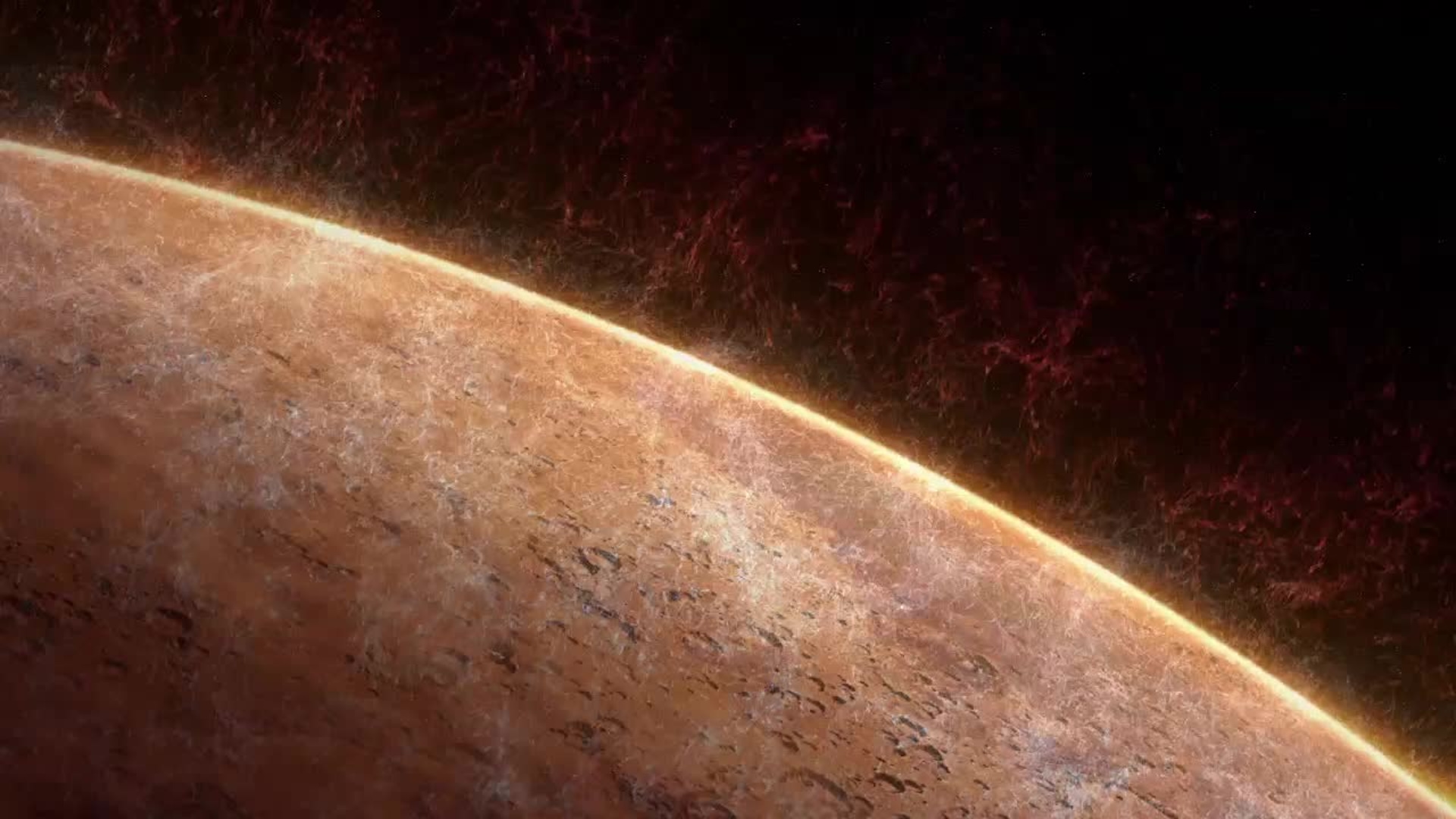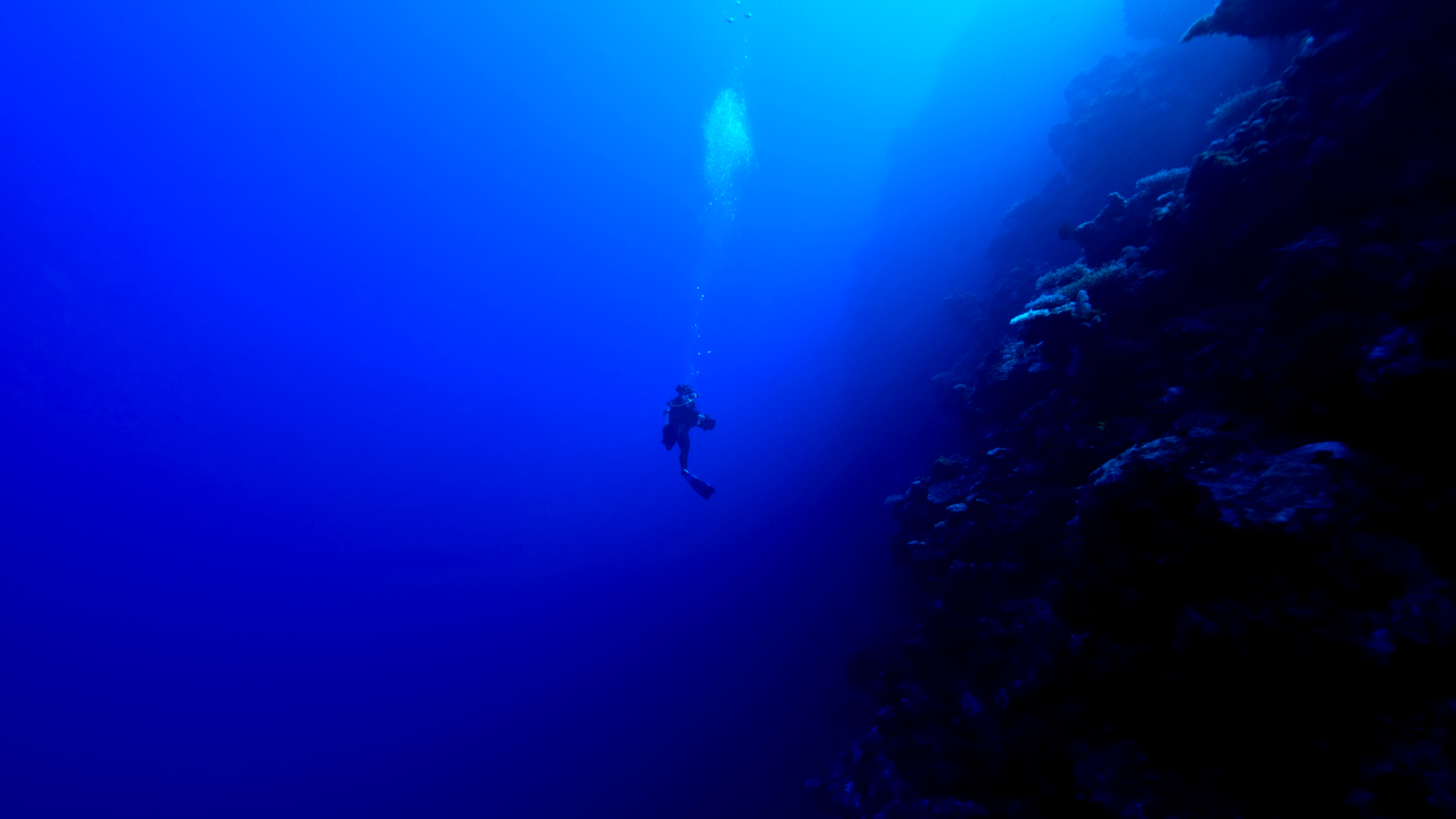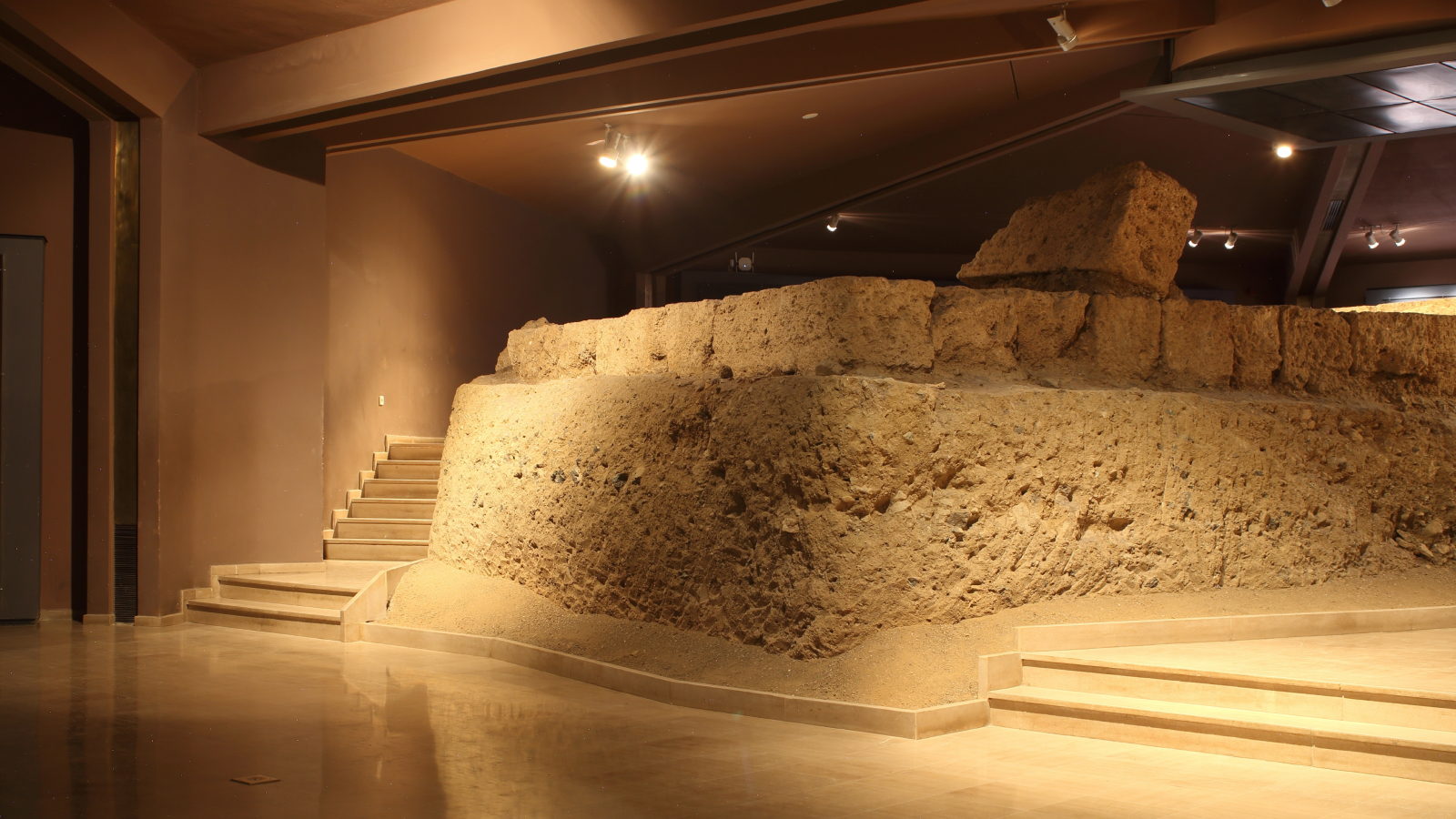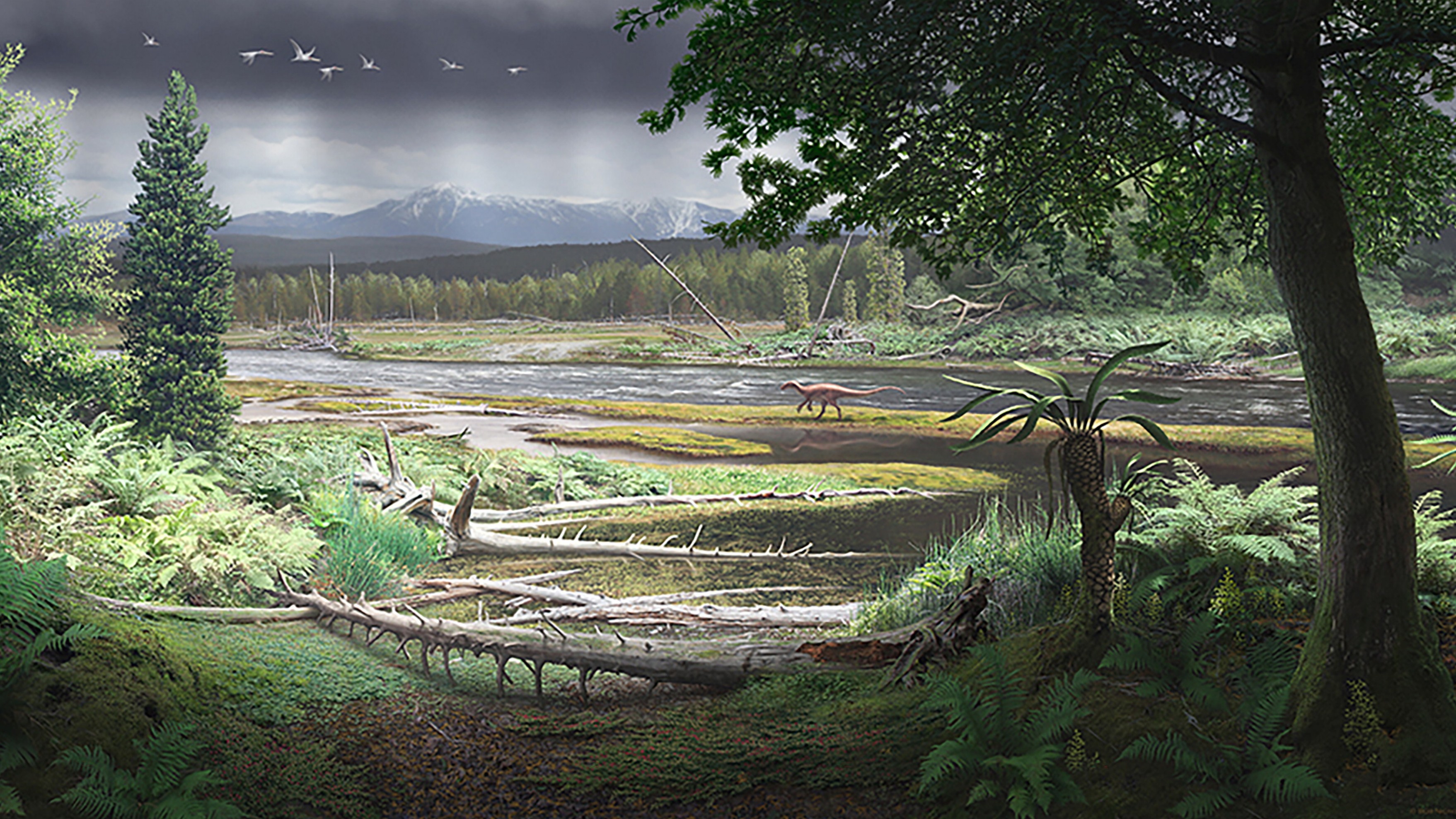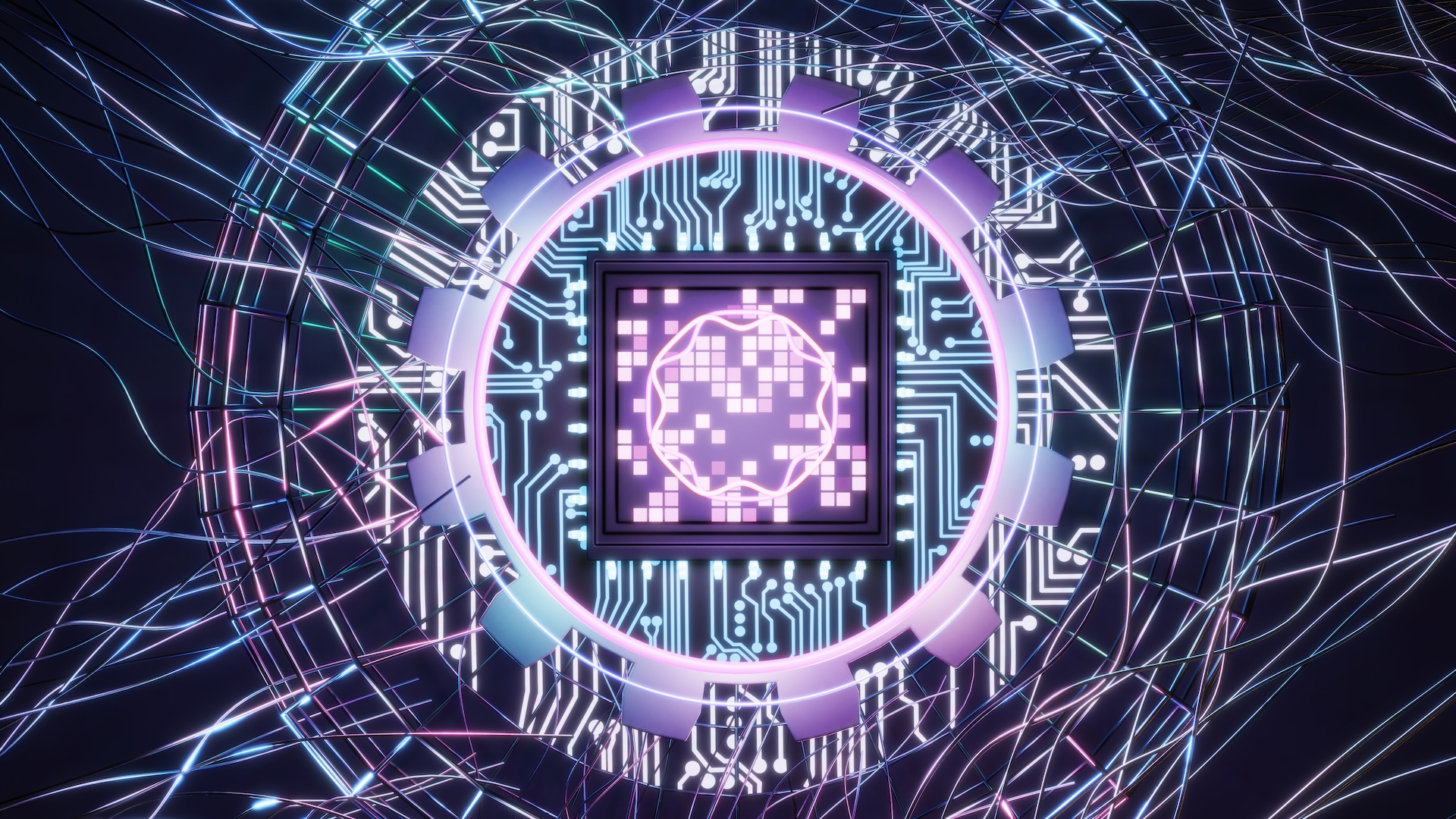The idea that Earth may operate as a single, self-regulating, living organism has existed for decades, emerging in the 1970s as the Gaia hypothesis. In this excerpt from “Gaia Wakes: Earth’s Emerging Consciousness in an Age of Environmental Devastation” (Columbia University Press, 2025), economic development and peacebuilding expert Topher McDougal describes how Earth might acquire a planetary brain powered by artificial intelligence (AI) in what he dubs the “Gaiacephalos hypothesis.” McDougal argues that this giant, global brain could benefit humanity by boosting the complexity of life on Earth and ultimately secure a more sustainable future.
What if our entire planet were to grow a consciousness? The human race finds itself aboard a vessel traversing the vastness of the Milky Way — the Spaceship Earth, as Henry George, Kenneth Boulding, Buckminster Fuller, and others since have so appositely described it. But those thinkers were using the phrase only to evoke the limitations placed on human societies in a relatively closed, steady-state system. They were merely implying that our economies can only grow so far before they come up against the very real resource constraints of our tiny planet floating in the vast emptiness of space.
Certainly, the widening scope of environmental devastation humans are wreaking on this planet throws these considerations into stark relief.
But what if Spaceship Earth is itself developing (and indeed has already developed much of the infrastructure to support) a single emergent consciousness? I call this idea the “Gaiacephalos hypothesis,” in deference to the “Gaia hypothesis” forwarded by James Lovelock, Lynn Margulis, and others, which contends that Earth’s interlocking environmental systems could be thought of as a single organism.
I argue that the two phenomena associated with Spaceship Earth — first the global environmental devastation we are starting to experience, and second the development of a planetary brain — are two halves of the same process. This process is part of a naturally recurring cycle that has driven the increasing complexity of life on Earth — one that will, with effort, culminate in the emergence of a global AI-powered “brain” capable of coordinating the body planetary.
Could a planet really develop a brain? A mind? Would such an outcome be desirable, and could we thwart that development if not? I don’t claim to predict what will happen, but rather what could happen. My contention is that Earth may, if we are lucky and diligent and clever enough, grow an emergent superconsciousness.
The questions this development would beg range from the practical to the philosophical and even quasi-mystical. For instance: Is life itself a natural and inextricable part of the evolution of the universe? Are there any limits to the scale of life? Is life the process by which the universe comes to know and understand itself?
To postulate the growth of a planetary brain may at first sound bizarre, even outlandish. Consequently, many readers may, in an effort to grant me the benefit of the doubt, be tempted to misread this treatise in metaphorical terms. “Perhaps the author means that the Earth has interlocking systems — climatological, ecological, biophysical — that could be thought of as a ‘brain’ or be likened to a mind.” But no, let’s eliminate any possibility of confusion: I postulate the growth of an emergent neural network — one whose totality is not designed by humans, even if its initial constituent parts are.
This neural network could quite literally enable Earth to achieve unitary consciousness on a massive scale. After the advent of this development, humans would likely continue to play various supporting roles in the life of the planet, but will ultimately find themselves subordinate to and conditioned by a higher intelligence with higher purposes.
What would this new mind consist of in tangible, physical terms? Well, microchips, circuits, superconductors and semiconductors, digital storage devices, fiber optic cables, eventually quantum computers — the stuff of electronic processors and communications. In other words, the planetary mind and the brain supporting it would emerge from what geoscientist Peter Haff has termed the “technosphere,” the vast panoply of tools we have created to fashion for ourselves a more interconnected world.
The planetary brain, if it emerges, would likely arise from AI-enhanced, human-made institutions: technologically sophisticated corporations and the governments regulating them, or what we collectively term “postindustrial economies,” themselves increasingly cybernetic.
But these interconnected systems and the spectacular potential for information processing they represent operate according to an inherently global logic. As such, a natural scalar synergy exists between high technology and global human institutions, including but not limited to transnational corporations, the United Nations, and transnational social movements. The more extensive the network, the richer its capacities. If they become extensive and fast enough, these systems may, eventually, function together as a brain. And just as in the human brain, where logic may at times war with “gut” instinct, or the need for fresh thinking wrestle with well-laid plans, the decisions made by Gaiacephalos would almost always be the mediated results of discussions, conflicts, and compromises amongst constituent analytical components.
The emergence of a planetary mind would not be the first radical scalar upgrade in the complexity of life on Earth. Indeed we have no fewer than four precedents from which to infer the general patterns at work. All previous upgrades have built on the scalar units of their predecessors. All of them have radically increased life’s capacity to harness and use energy — in other words, its capacity for entropy.
These entropy-maximizing processes oscillate cyclically between episodes of expansion and centralization, growth and coordination. Successful units first begin to predate others, but eventually forge more mutualistic relationships with them as prey becomes scarce.
Mutualism yields hierarchical collectives. But these collectives are unwieldy; they require the countervailing formation of centralized information-processing to coordinate their myriad functions. Collectives that succeed in developing coordination apparatuses thrive. In this way, a new, higher-order unit emerges.
The first three of Earth’s upgrades are studied in biology. They include the emergence of, respectively, prokaryotes, eukaryotes, and brainy multicellular organisms. The fourth of these upgrades is studied in the social sciences, and involves the emergence of centralized states as massively coordinated resource exploiters.
As with the brains of multicellular organisms, Earth’s brain will be energetically taxing to maintain. But it will also potentially pay great returns, allowing the planet to seek out new sources of energy, while regulating those internal functions that would dispose of the energy waste (heat). And while human-devised forms of organization would (at least initially) set the parameters for the basic structure, it would likely evolve quickly. Its abilities to make quick sense of terabytes of information, identify and anticipate possible problems, find optimal solutions to them, and take appropriate actions will far outstrip the capacities of human institutional apparatuses.
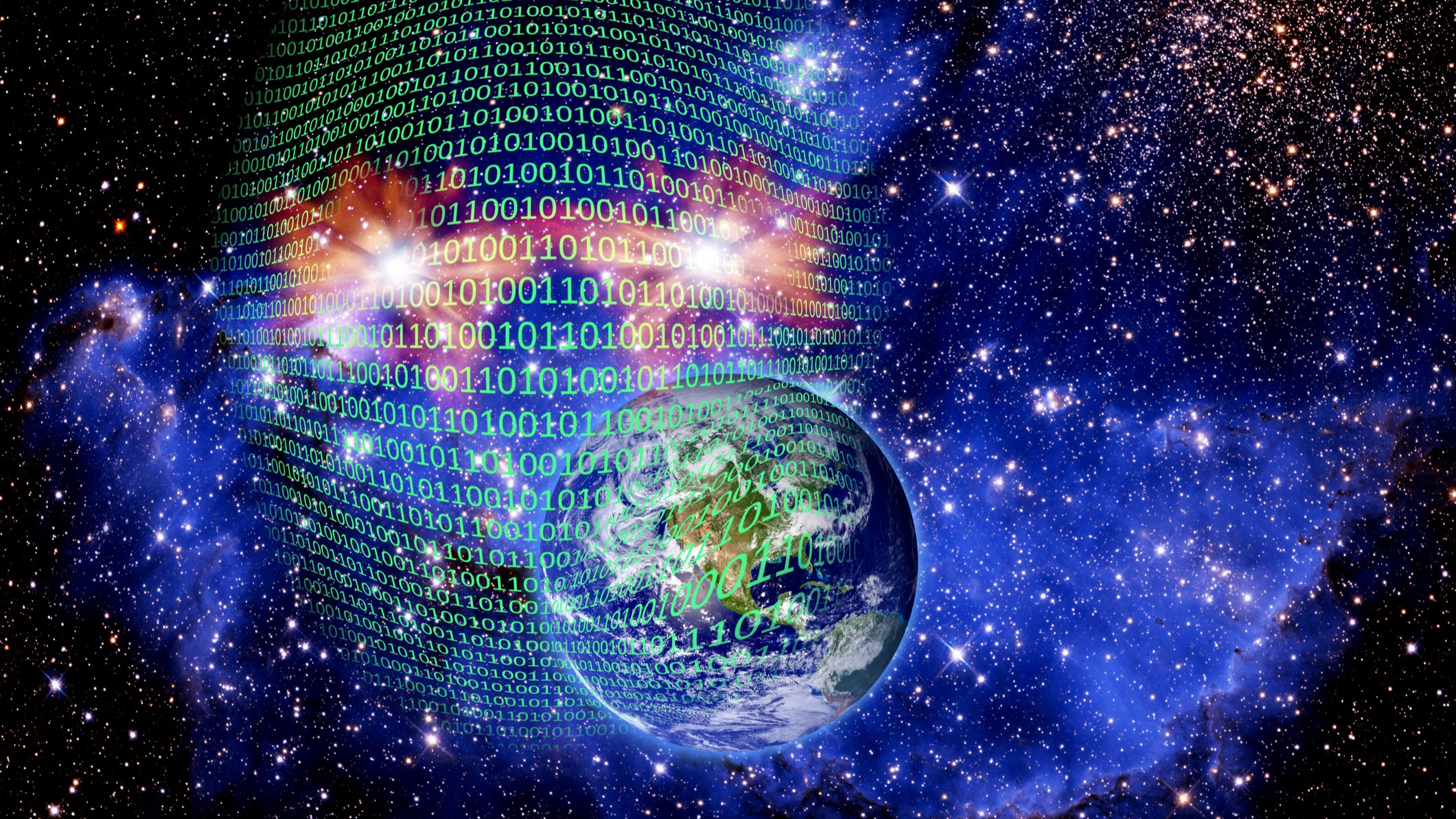
At least a few questions confront us under the Gaiacephalos scenario. First, is Earth endowed with the resources necessary to afford a planetary brain? Brains are always energy-intensive organs, and the emergence of the Gaiacephalos, nascent though it may be, has already proved extremely taxing to the body planetary.
Larger planets can probably more easily afford to invest in brain development than smaller ones. Do we have the necessary biological capital to support a brain, or will its development prove so costly that the planet falls back to a brainless state? Second, are there smarter policies that we can adopt that can make Gaiacephalos more likely to develop? Third, if we are successful in creating a planetary brain, what would daily life for humans look like? Will we be part of this brain? Or will we have worked ourselves out of a job? Will the planetary intelligence that emerges be inimical to human flourishing? And will our free will be totally overridden by this potential tyrant? And finally, what are the implications of the emergence of a planetary brain for our understanding of the universe and our place in it?
I cannot claim that what I describe will happen. Nor can I even say I believe it is statistically probable. It is for me one analytic possibility of uncertain likelihood. The argument traces a hopeful path into the future, but that hope should not bias our assessments of the path’s likelihood of success.
But this argument does have the potential to direct our policy actions in order to make this path more likely. In that sense, it might serve as a self-fulfilling prophecy. It is important enough to deserve our attention, and perhaps also our best collective efforts: it may prove preferable to the foreseeable alternatives. It is something to run towards, rather than merely run away from. For those who despair of ever achieving environmental sustainability, it may plot one feasible course toward a version of that end.
Excerpted from Gaia Wakes: Earth’s Emergent Consciousness in an Age of Environmental Devastation by Topher McDougal (2025) with permission from Columbia University Press.








